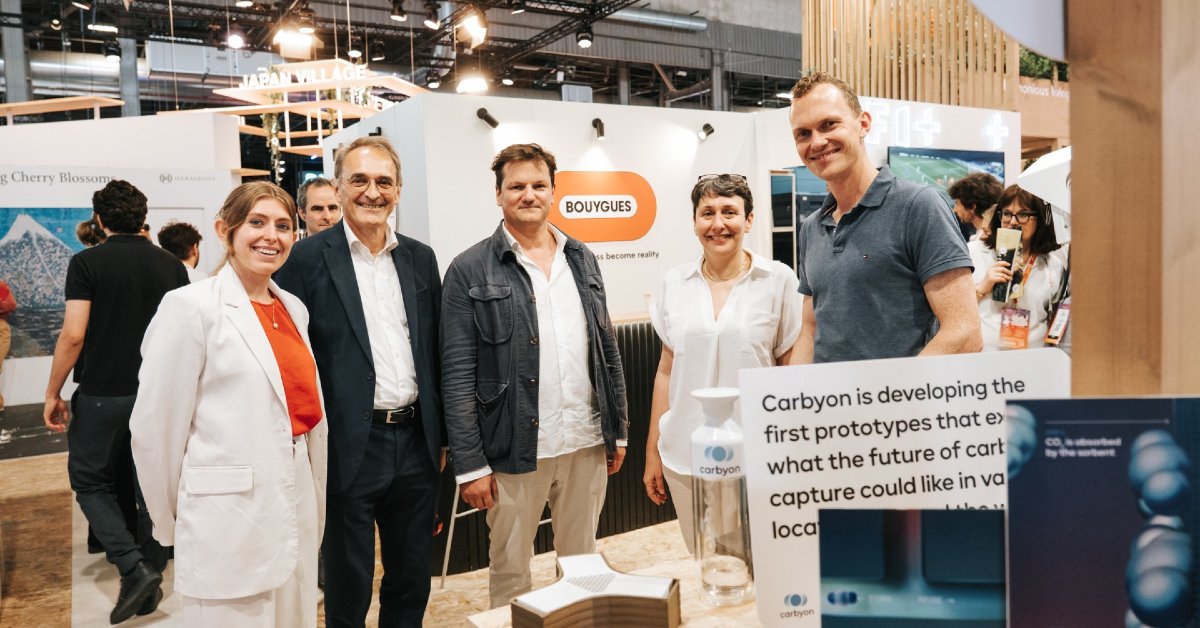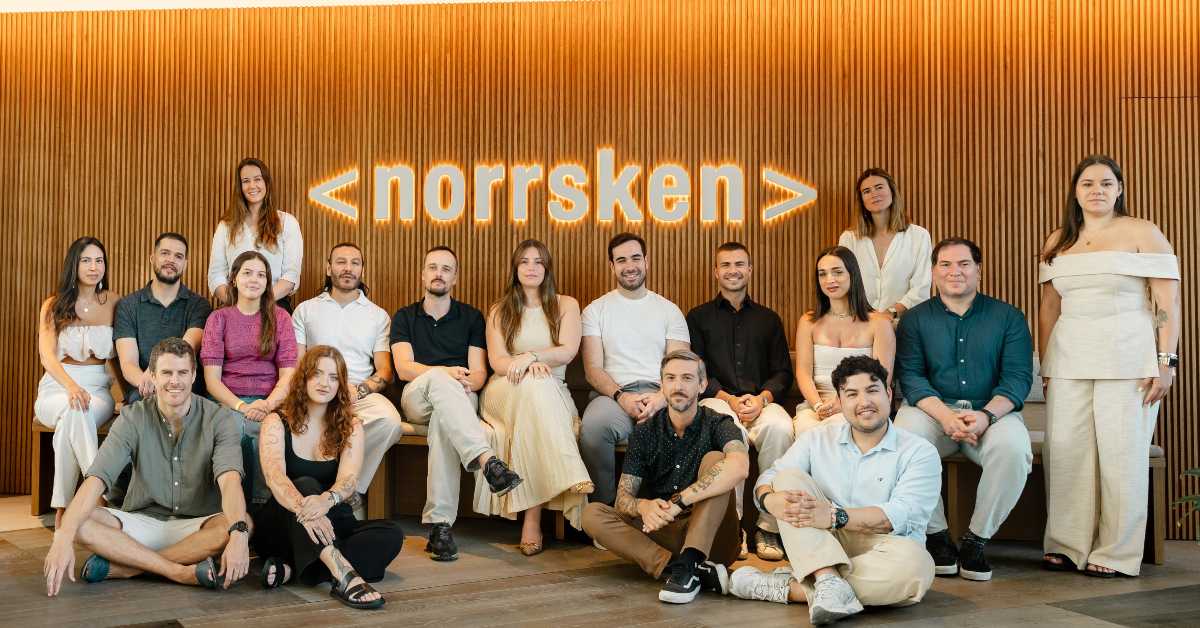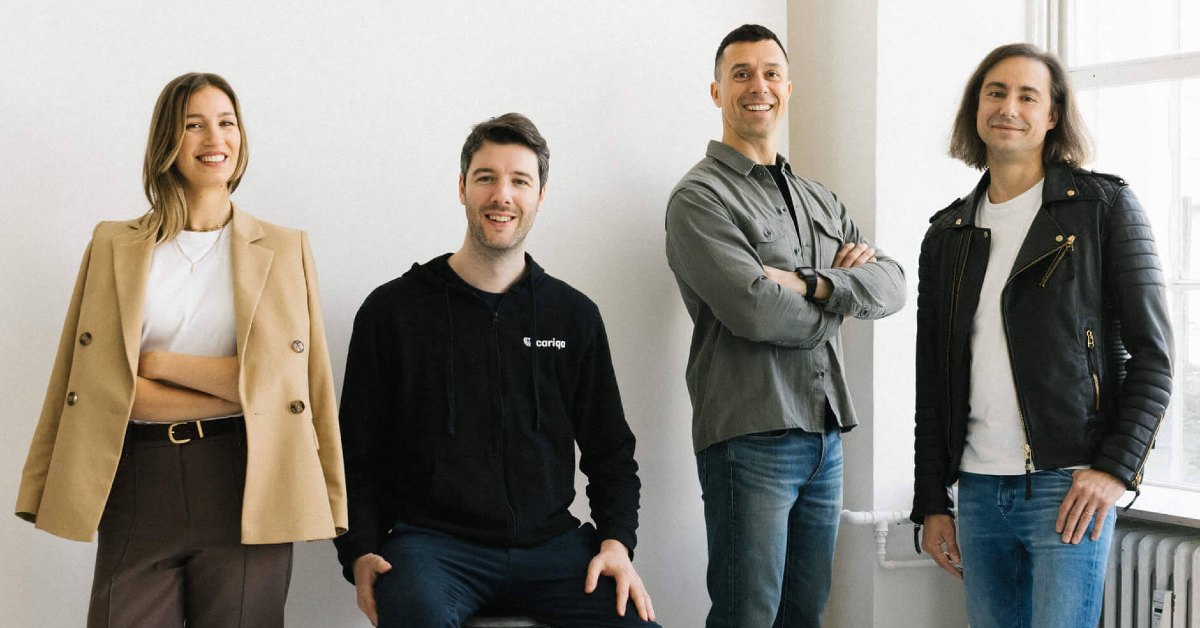London-based Gradient Labs, a startup building an autonomous AI agent aiming to resolve up to 80% of customer queries, has raised €11.08M in a Series A funding round led by Redpoint Ventures.
Based out of California, Redpoint Ventures is a VC firm that partners with visionary founders to create new markets and redefine existing ones.
The firm invests in startups across the seed, early and growth phases.
Redpoint has backed over 465 companies with 140 IPOs and M&As, including 2U, HomeAway, Heroku, Netflix, PureStorage, Twilio and Zendesk, and incubated market disruptors like Android. In total, the firm manages $4B across multiple funds.
“The Gradient Labs team has an exceptional founder-market fit, having worked together for years at Monzo, giving them the deep expertise needed to build the best-in-class product for a complex, highly regulated market. Just three months post-launch, they secured nine customers – including one of Europe’s largest banks—and have since continued to demonstrate strong traction and momentum. We are very excited to partner with Gradient to help them achieve their bold ambitions,” says Alex Bard, Managing Director at Redpoint Ventures.
Other investors include Localglobe, Puzzle Ventures, Liquid 2 Ventures, and Exceptional Capital, who also participated.
The capital will allow Gradient Labs to expand its technology, marketing, sales, onboarding, and customer success teams and increase its investment in research and development.
With customers already reporting user satisfaction scores of up to 98 per cent, this will enable the company to automate more complex processes while maintaining high service quality.
High expectations and pressure
Businesses spend up to €11.5 for each customer service interaction, but meeting customer expectations is still tough.
Today, 66 per cent of customers expect a response within minutes, and one in three will leave a brand after a bad experience. This has led to 87 per cent of service agents feeling a lot of job-related stress.
AI tools are helping by speeding up responses and reducing workloads, but they only handle basic support, which covers only 25 per cent of total customer service costs.
Gradient Labs: AI customer support
Founded in 2023 by Dimitri Masin, Neal Lathia, and Danai Antoniou — all early team members at UK neobank Monzo- Gradient Labs develops AI-powered customer service platforms purpose-built for regulated industries.
The startup’s AI platform, Otto, learns company-specific products and processes, enabling it to handle complex customer inquiries reliably and safely.
The UK company assists regulated businesses, such as those in the financial sector, by eliminating repetitive tasks from the entire customer operations cycle, from frontline support to back-office processes.
Utilising automation, its AI agent consistently resolves up to 90 per cent of queries with a quality assurance pass rate of 98 per cent, outperforming human agents and alternative chatbots while reducing costs by 75 per cent.
What makes Gradient’s model work?
One of the company’s selling points is that its AI is designed to fit into the real-world workflows of large, complex businesses, and not replace them.
“The core regulatory requirements are remarkably consistent across most countries. Whether you’re in London, New York, or Frankfurt, banks can’t provide unlicensed financial advice, must identify and protect vulnerable customers, and follow strict protocols around fraud investigations and financial hardship cases. These fundamental rules don’t change frequently,” says Dimitri Masin, CEO of Gradient Labs, to Silicon Canals.
“What makes our approach powerful is that AI agents don’t require extensive code rewrites when regulations do shift. Instead of rebuilding complex decision trees, we adjust text-based instructions that guide agent behaviour. When a new compliance requirement emerges, we can update how our agents handle those scenarios much faster than traditional rule-based systems. It’s never been easier to adapt to regulatory changes,” he adds.
Supporting vulnerable customers faster
One notable example involves helping a lender better support vulnerable customers facing financial hardship, a process often slowed by limited specialist resources, according to Masin.
“When customers are flagged as vulnerable or facing financial hardship, regulations require special handling. The intent behind these rules is good, to protect people who need extra support. But in practice, it creates a bottleneck,” says Masin.
“Most companies set up specialist teams to handle these cases, but they’re typically understaffed. So the very customers who need the most help end up waiting days just to get a response. It’s completely backwards,” he adds.
To solve this, Gradient’s AI steps in early to gather critical information.
“Instead of customers sitting in a queue, our system immediately starts gathering information about their situation — what happened, how their circumstances changed, what they can realistically afford,” he explains.
The AI also walks customers through available options, like reduced payment plans, promises to pay, or adjusting payment dates, while collecting all data needed by human agents.
“We package all of this into a complete case file. So when it reaches the human specialist, they have everything they need to make a quick decision. We’ve cut response times from days to minutes while keeping humans in control of the sensitive decisions,” he reveals.
Knowing when to escalate to a human
Despite its capabilities, Gradient’s AI is not designed to handle every single customer issue. And it’s by design, confirms Masin.
“This happens regularly, and it’s one of our most important capabilities. When our AI realises it lacks the tools for a specific action, like ordering a replacement card, or doesn’t have enough data to resolve a payment issue conclusively, it immediately hands off to a human colleague,” he clarifies.
“This mirrors how well-run human support teams operate. You wouldn’t expect a junior employee to handle every possible scenario on day one. They tackle what they can confidently resolve and escalate appropriately when they hit their limits. Our AI follows the same principle: when in doubt, involve a human who has the right access and authority,” he says.
Total transparency and auditability
One of the most common concerns with AI in regulated industries is a lack of visibility. However, the UK company tries to tackle this head-on.
“Nothing in our system is a black box. Every decision, data lookup, and action our AI takes gets logged in detailed audit trails. When the agent changes an account status or processes a request, that’s all captured in our internal interface, where compliance teams can review it,” he says.
“We encourage clients to treat our AI like any human employee: you need quality assurance. Every customer already does QA reviews on their human agents’ work, rating them on accuracy, process adherence, and tone. They apply the same review process to our AI agents, taking regular samples and scoring performance across the same criteria.”
Regulators are able to review these audit logs in the same way they assess other customer service operations.
The key difference is that the logs provided are more comprehensive and easily searchable than typical human interaction records.
Gradient Lab’s $10K challenge
A few days back, Gradient Labs announced a bold new initiative: a $10,000 challenge. The initiative is designed to counter what Gradient Labs calls the “infinity plus one” era of inflated marketing claims.
Since launching the challenge, the company claims to have conducted four proof-of-concept comparisons, winning each by significant margins.
“Just this week, a crypto exchange reported that our AI achieved a 75 per cent resolution rate straight out of the box. Their existing solution, after weeks of optimisation, only reached 45-50 per cent. Their customer satisfaction scores were already decent at 75-80 per cent, but ours hit 92 per cent,” reveals Masin. “We launched this challenge because we’ve never lost a side-by-side comparison. That track record gives us confidence that it’s financially safe for us to offer.”
Keeping it fair and square
To maintain fairness in its challenge, the UK company has built-in safeguards to prevent cherry-picking or manipulated comparisons.
The core mechanism is traffic allocation, ensuring both AI systems face the same real-world conditions.
“The key safeguard is traffic allocation. We insist that both solutions – ours and the competitor’s – handle the same types of customer inquiries. If a company wants to split all incoming traffic 50-50, that works. If they want to focus on account-related queries only, that’s fine too, as long as both systems get identical query types,” he states.
According to Masin, Gradient Labs doesn’t restrict how much time the competitor spends optimising their tool because theirs works straight out of the box.
“The only other requirement is data access parity – if the existing solution has access to specific customer data or can perform certain actions, we need the same access. That creates a true apples-to-apples comparison,” he adds.
Who can take the challenge?
The $10K Challenge is open to challengers across the globe, but only within financial companies like banks and insurance firms.
“We’ve specialised deeply in this vertical and built our AI around the unique requirements of regulated financial institutions. That focus and domain expertise is why our agent performs particularly well in this space, so that’s where we’re confident enough to put our money behind the guarantee,” he concludes.










01
From telecom veteran to Dutch Startup Visa success: The Jignesh Dave story